May we regard the reading life of the young as the most vital homeland protection strategy goingfor our home is this planet and our family the wide-flung tribes who shelter therein. Gregory Maguire, from a speech at
As a poet, Naomi Shihab Nye brings a fresh perspective to the world. Her poems are neighborly and hard-won, playful and instructive, canny and wise. She pays close attention and notices things that might otherwise be overlookedsometimes by gazing at them directly, sometimes by catching them from the corner of her eye.
For example, she answers a typical question about how she became a writer with a little poem that takes aim at those two clichd figures from one of our first childrens books, those dumbbells Dick and Jane: Possibly I began writing as a refuge from our insulting first grade textbook. Come, Jane, come. Look, Dick, look. Were there ever duller people in the world? You had to tell them to look at things? Why werent they looking at things to begin with? We all start out noticing things, Nye reminds us, we just need to value what we see. Thats why nothing is too small or out-of-the-way for her to observe. Her poems are utterly clear but secretly cunning, and she is like William Blake, the great English poet of innocence as well as experience, who knew it was possible To see a World in a Grain of Sand. Children are everywhere in Nyes work.
She treats childhood not just as a time of life but also as a sacred place, almost a country of its own. Thats why she names the first section of this book The Holy Land of Childhood. She is very loyal to that country, which knows no boundaries, and states outright that the one flag we all share is the beautiful flag of childhood. It is a colorful flag and waves over all our heads, like a banner. Sometimes Nye recalls her own childhood, other times she observes the childhoods of others. She writes as a parent, a visiting poet, a teacher dropped into someone elses classroom.
She is especially alert to the oddball and insightful things that kids say, like I never want to minus you and Its hard to be a person and I do and dont love you/ isnt that happiness? Nye notes these bold mottoes not because they are cute but because they express unexpected feelings, strange truths. Nye frequently takes the childs point of view in her poemsthe French writer Jean Cocteau quipped that there are poets and grown-upsand writes with an innate feeling that children are often lonely and afraid. They feel unprotected, manipulated by adults in ways they dont like or even understand. Nye tries to address these feelings of isolation and loneliness. She believes that poems connect people, libraries open up our lives, and no one is alone who has a beloved book for company. You have a trusted companion in a book.
Poetry is expressive and useful because it helps us to understand ourselves better. It also enables us to understand other people, especially people who are different than we are. The poet and the reader may not know each other personally, but they share an intimacy that is irreplaceable. Sometimes, when you read a poem, you feel as if the poet is speaking directly to you, maybe even that the poem was made particularly for you. In this way, Nye sees the task of the poet as both humble and hopeful. Hence the close of one of her most famous poems, Famous: I want to be famous in the way a pulley is famous, / or a buttonhole, / not because it did anything spectacular, / but because it never forgot what it could do.
Naomi Shihab Nye is a Palestinian American poet, and the second section of this book is called The Holy Land That Isnt. This section begins with a set of touching poems about her father, Aziz Shihab, whose family lost their home in Jerusalem. After that, they moved to a West Bank village in 1948. He emigrated to the United States and became a distinguished Arab American journalist in Texas. Nye takes to heart her fathers sadness and longing for a lost homeland, his proud memories, his enduring hopefulness. She is indignant about what has happened not just to him but to his entire family, one side of her heritage, and this gives her a personal stake in seeking justice for generations of refugees, displaced and occupied people.
War isnt a game, it has deep human consequences. But she doesnt get on soapboxes and give lectures, she doesnt write about the Israeli-Palestinian conflict from a grand geopolitical perspective but from a homespun, local point of view, an intimate human perspective. She is down-to-earth and says, You dont think what a little plot of land means / till someone takes it and you cant go back. The suffering of other people is one of the touchstones of her work. She keeps people firmly in view whenever she is writing about politicsor anything else. / I touch its riddle: wind, and seeds. / Something pokes us as we sleep. / Its late but everything comes next. / Its late but everything comes next.
It makes sense for Nye to title the third section of this book People Are the Only Holy Land, but its a radical thing to say. We typically think of the Holy Land as an actual place, an ancient country, a physical region with spiritual significance, but Nye redefines it to say that the historical place or places, the physical patches of land, dont matter nearly as much as the people themselvespeople who live everywhere. In other words, she saves her patriotism not for countries but for people themselves, who have childhoods and families, very specific histories. It is human beings, life itself, that she considers sacred. Indeed, her unwavering focus on people and their stories, their inner lives, is one of the main features of her work. Thats why she makes so much of a man crossing the street in the rain with his son on his shoulder.

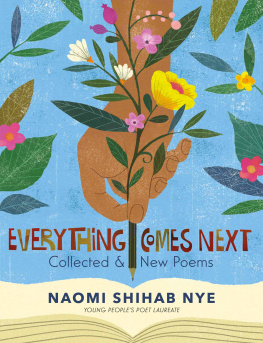
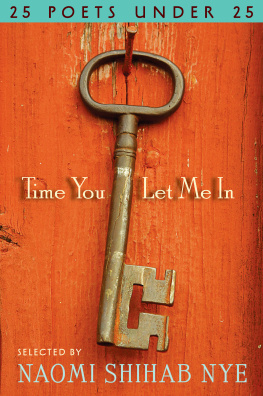
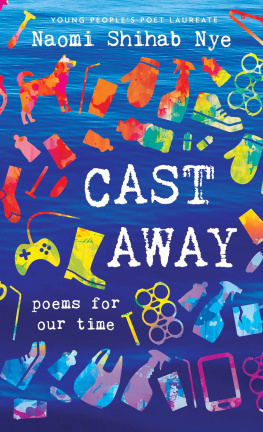
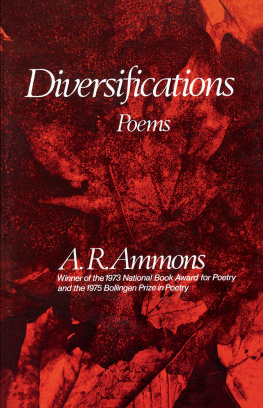
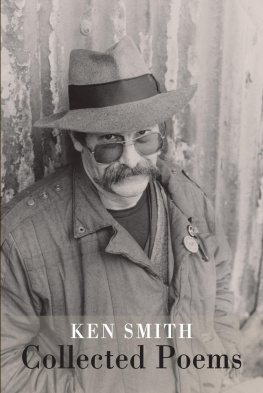
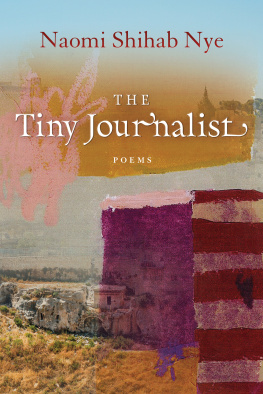
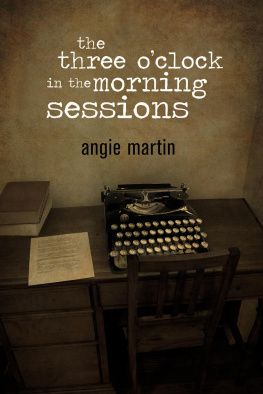
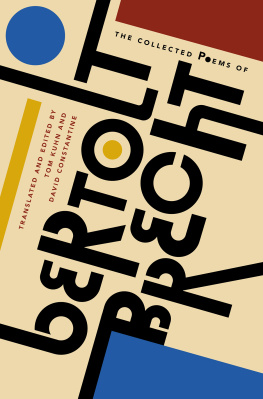
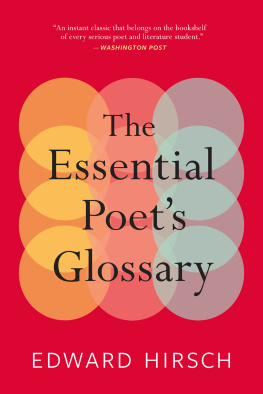

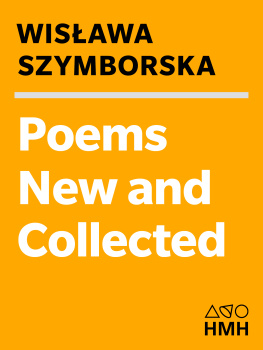
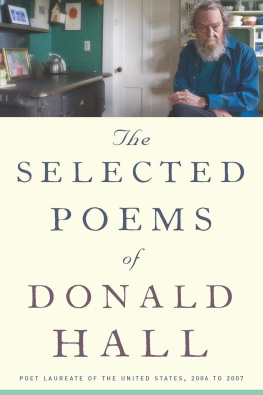
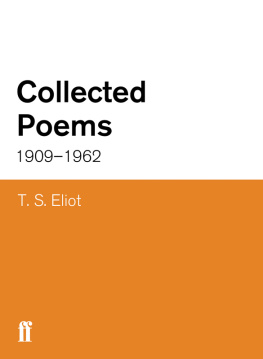
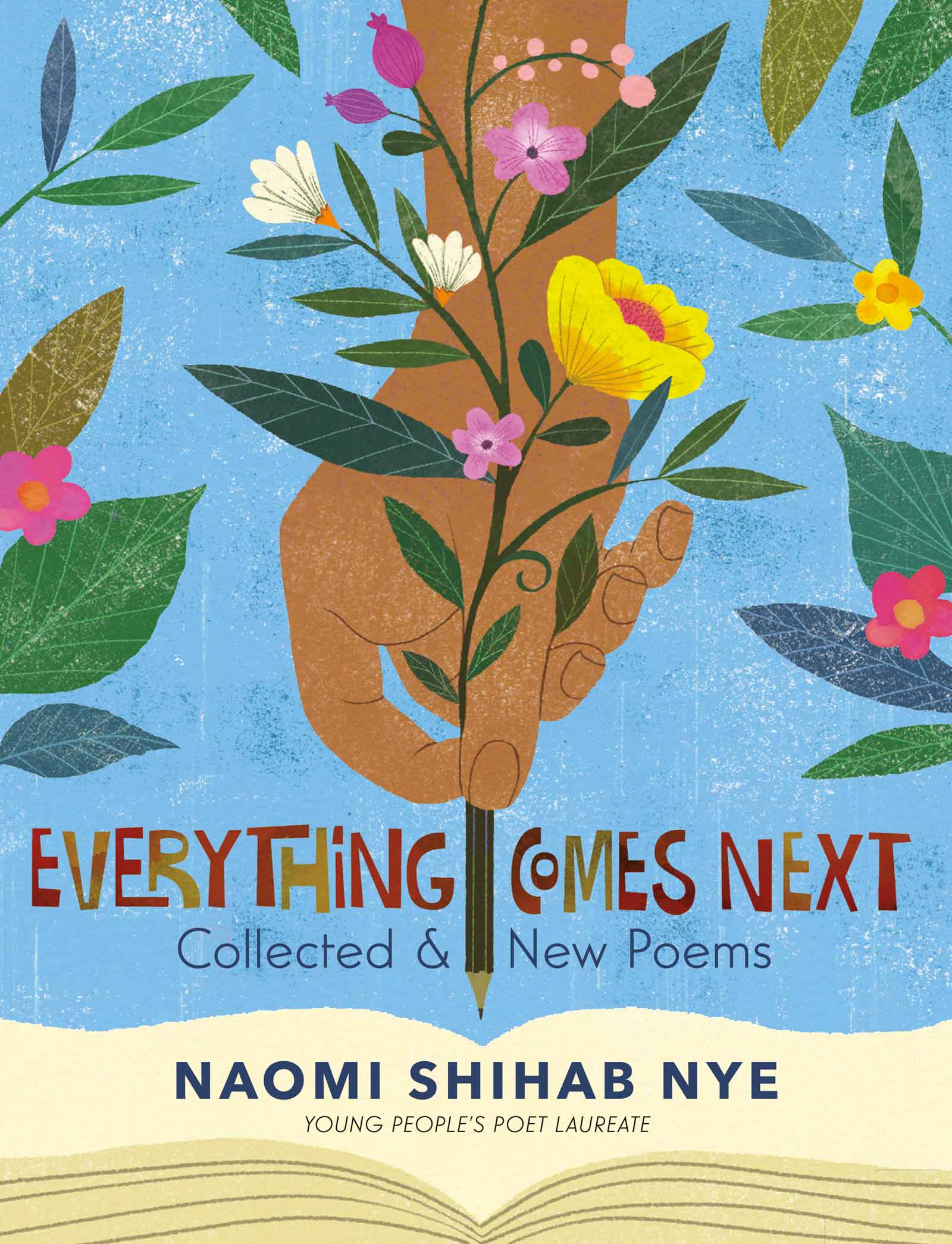

 To all readers and writers of poems everywhereBe braveLittle thingsstill matter most
To all readers and writers of poems everywhereBe braveLittle thingsstill matter most